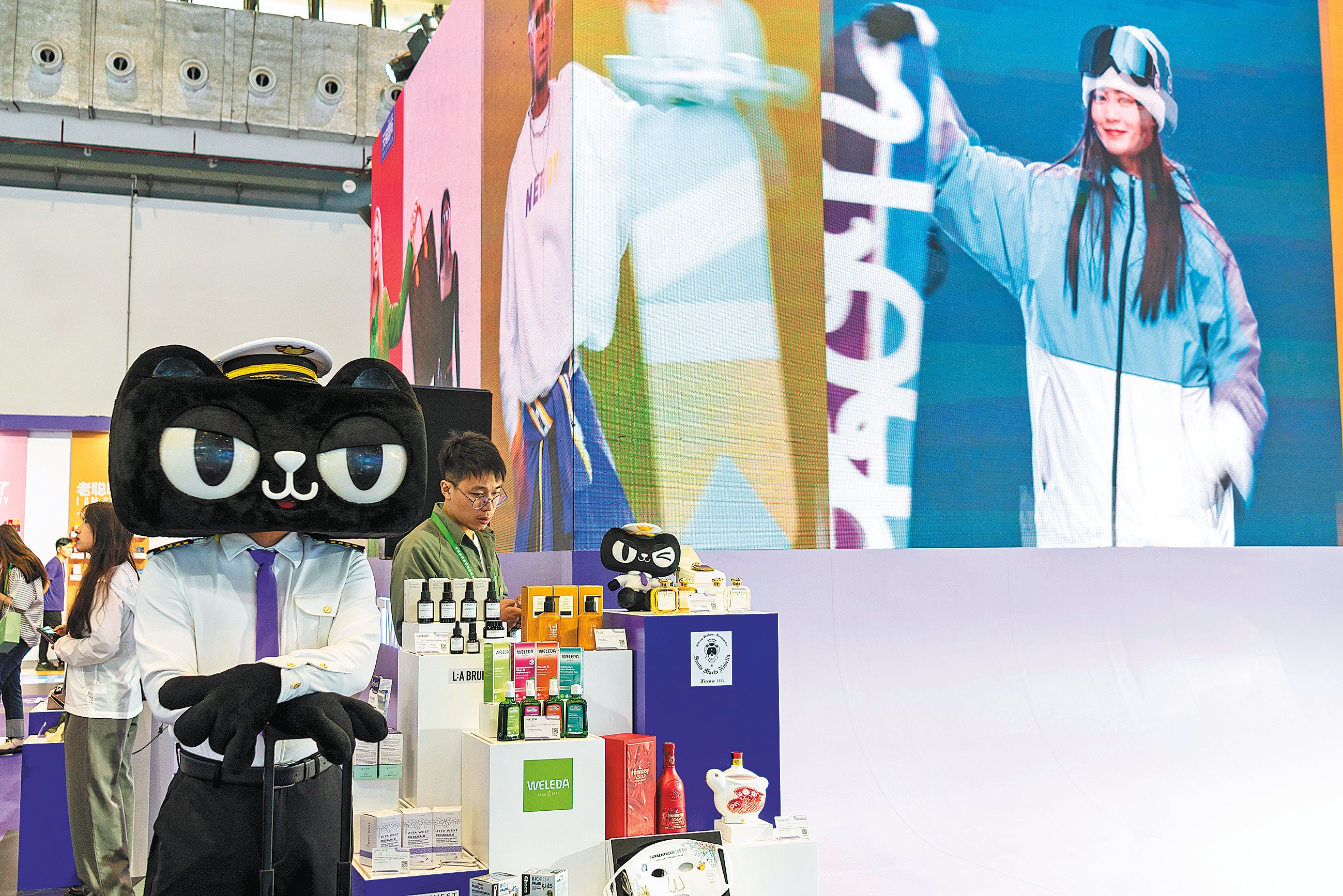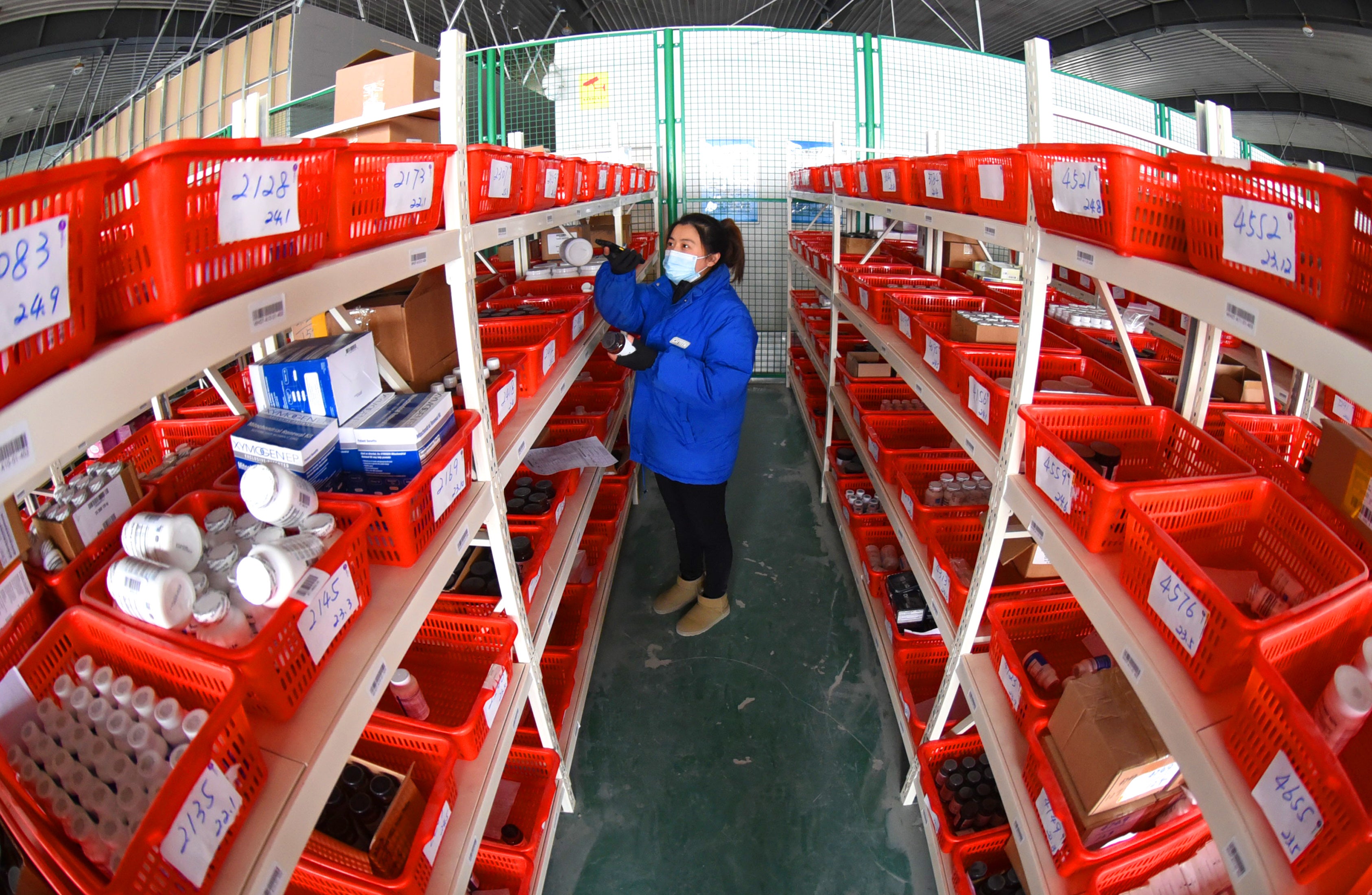Premium goods surge on cross-border apps
THE ARTICLES ON THESE PAGES ARE PRODUCED BY CHINA DAILY, WHICH TAKES SOLE RESPONSIBILITY FOR THE CONTENTS

Recently Fang Wenyu has been frequently trawling mobile apps to fill her shopping carts with a range of imported items, from camping equipment and hand-drip coffee products to kitchen utensils and red wine.
Millions of Chinese consumers are increasingly purchasing premium or niche consumer goods, with their expenditure on imported and foreign-brand products turning into a key driver of consumption upgrading, experts said.
“I find cross-border online shopping very convenient and discounts are often available. I also like to buy all sorts of fitness and healthcare products for my family members,” Fang, a 33-year-old fashion magazine editor based in Beijing, said.
Sales of imported products surged 64 per cent in 2022 compared with the same period in 2020, with the number of users buying imported products nearly tripling, data from JD Worldwide, the cross-border e-commerce platform of Chinese e-commerce company JD, showed.
The top five imported products by transaction volume on JD Worldwide last year were healthcare, baby and maternal, cosmetics and skin care, consumer electronics, and pharmaceutical products, a report by JD’s consumption and industry development research institute showed.
The fastest-growing imported categories included consumer electronics, personal care, home appliances, alcohol and cosmetics.

China’s cross-border e-commerce sector has been growing exponentially over the past few years as the country’s middle- and high-income shoppers demand increasingly diversified and personalised products and services, experts said.
The country’s cross-border e-commerce hit 2.11 trillion yuan (£231.6 billion) in 2022, a year-on-year increase of 9.8 per cent, according to the General Administration of Customs.
China has been optimising the list of imported retail goods for cross-border e-commerce. Last year, 29 product categories with strong demand from consumers, including ski equipment, dishwashers and tomato juice, were added to the list, according to a statement jointly issued by the Ministry of Finance and seven other central government departments.
Sales of imported wine sets jumped 193 per cent year-on-year in 2022, according to Tmall Global, the cross-border e-commerce site of Chinese technology company Alibaba Group. It said that residents living in third and fourth-tier cities contributed the fastest growth in purchasing imported, high-end and niche household products.
Chinese consumers are favouring an increasing number of overseas brands that represent new lifestyles. Tmall Global said it introduced more than 6,400 new overseas brands last year, with the turnover of imported wine sets, urban cycling products and motorcycle helmets doubling from a year earlier.
“With the expansion of domestic demand and advances in emerging retail technologies, China has introduced preferential policies, such as lowering import taxes and expanding the range of goods allowed to be imported,” said Zhang Tianbing, head of Deloitte Asia-Pacific consumer products and retail industry.
Market consultancy iiMedia Research said that with China’s further opening-up, gradual improvement in logistics and deliveries, and rising incomes, as well as demand for imported goods will continue to increase and provide a big boost to upgraded consumption.
Li Yanchuan, head of Amazon China Global Store and Prime, said young Chinese consumers, especially Generation Z (those born in the mid- and late 1990s and into the 2000s), think and judge independently while choosing brands, and prefer to pursue niche lifestyles and personalised products.
He noted that the sales of fishing, skiing, camping and other outdoor sports products have witnessed rapid growth, while virtual-reality equipment, hand-drip coffee products, and tableware and kitchen utensils with unique designs have been favoured by Chinese shoppers in recent years.
China’s retail sales – a major gauge of consumption – rose 18.4 per cent year-on-year to 3.49 trillion yuan (£382.93 billion) in April, and expanded by 7.8 percentage points from the level in March, data from the National Bureau of Statistics showed.
NBS Spokesman Fu Linghui said that with the restored consumption scenario, people have exhibited an increasing propensity to consume, and service-related consumption has been on the rise.
“The consumption recovery is still in the primary stage, and there is room for the improvement of consumption power and people’s willingness to spend money,” Fu noted.
